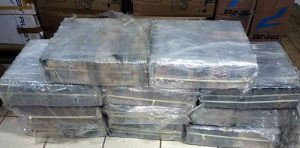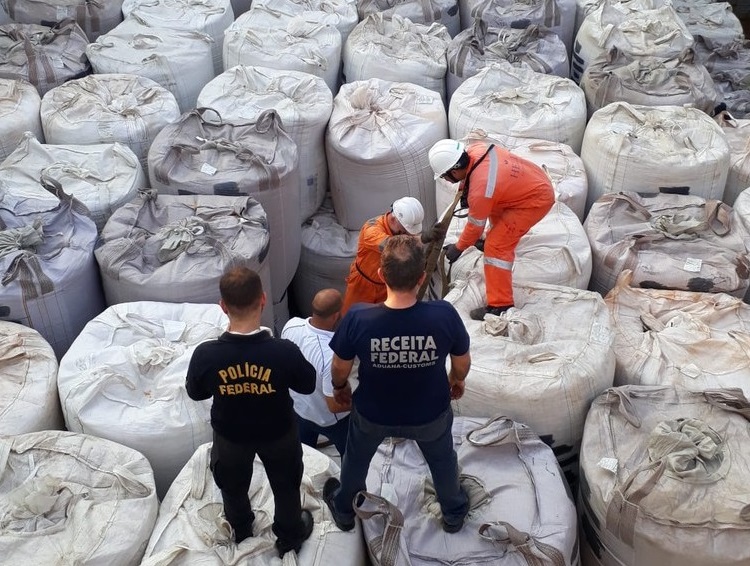In less than a week, the Brazilian Federal Police (PF, in Portuguese) seized close to 2,300 kilograms of cocaine bound for Europe. The shipments were found in three of the country’s main ports.
On October 5, police officers seized 472 kg of cocaine at the Port of Salvador, in Bahia. “The drug was hidden in a cargo of iron ore bound for Europe, with the Port of Antwerp, Belgium, as its final destination,” the PF said in a statement.

On October 3, officers arrested four Brazilian nationals with 238.9 kg of cocaine at the Port of Natal. “The drug was going to be inserted in a container and sent to Europe,” said the PF.
The operation was carried out together with agents of the Brazilian Federal Revenue Service who intercepted a suspicious truck at the port’s entrance. “Following a thorough search, several cocaine tablets were found in the vehicle’s structure, hidden in a modified compartment in the trailer,” the PF said.
In addition to the driver, three men were arrested for providing cover near the port’s main gate and waiting for the goods to clear.
So far, in 2020, agents have seized 5.5 tons of cocaine at the Port of Natal.
On October 2, in another joint operation, the PF and the Federal Revenue Service seized 1,520 kg of cocaine at the Port of São Sebastião, in São Paulo.
“The narcotics were concealed on a ship among a load of corn. It was bound for the port city of Cádiz, in southwestern Spain,” the Federal Revenue indicated in a statement.
The ship, which sails under an Antigua and Barbuda flag with a Russian crew, was docked in São Sebastião, awaiting authorization to depart to Cádiz, reported the Spanish news agency EFE. The PF initiated an investigation to find the perpetrators of the international drug trafficking scheme.
Although Colombia and Peru are the largest cocaine producers, drug traffickers prefer to export the drug from Brazilian ports, due to the greater commercial exchanges between Brazil and Europe.
Brazil’s export products are more diversified, which helps to conceal the cocaine in cargo containers, according to EFE.








